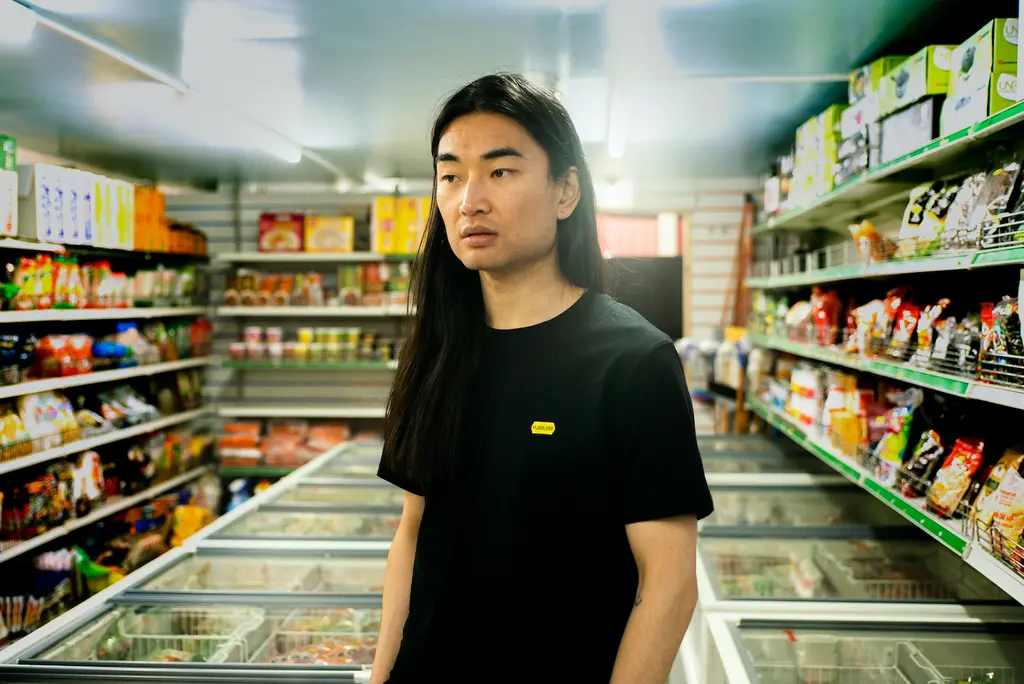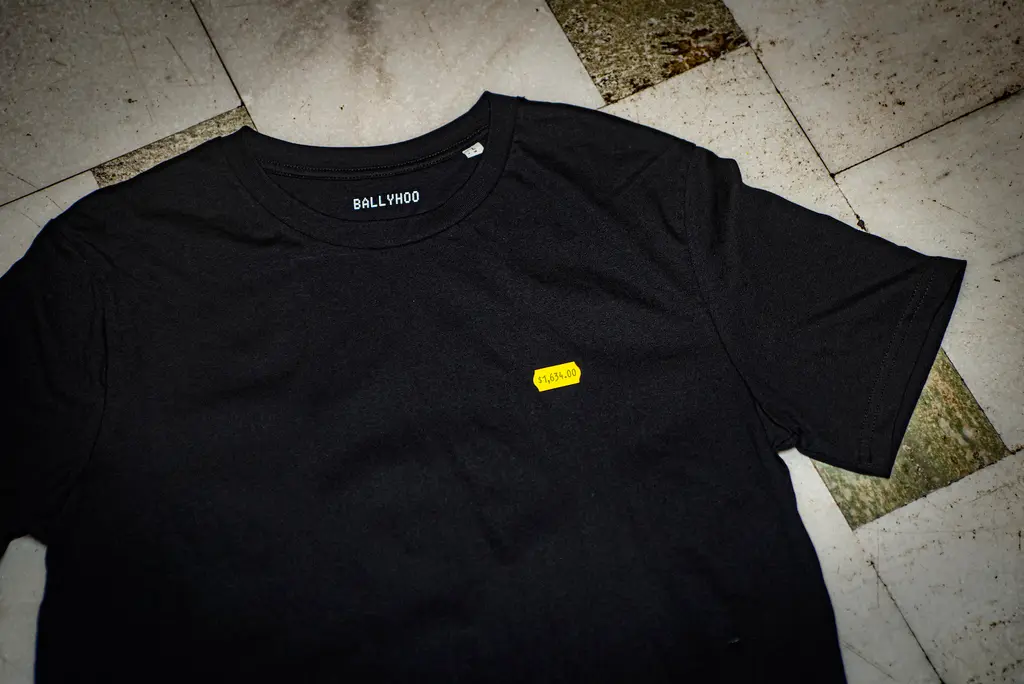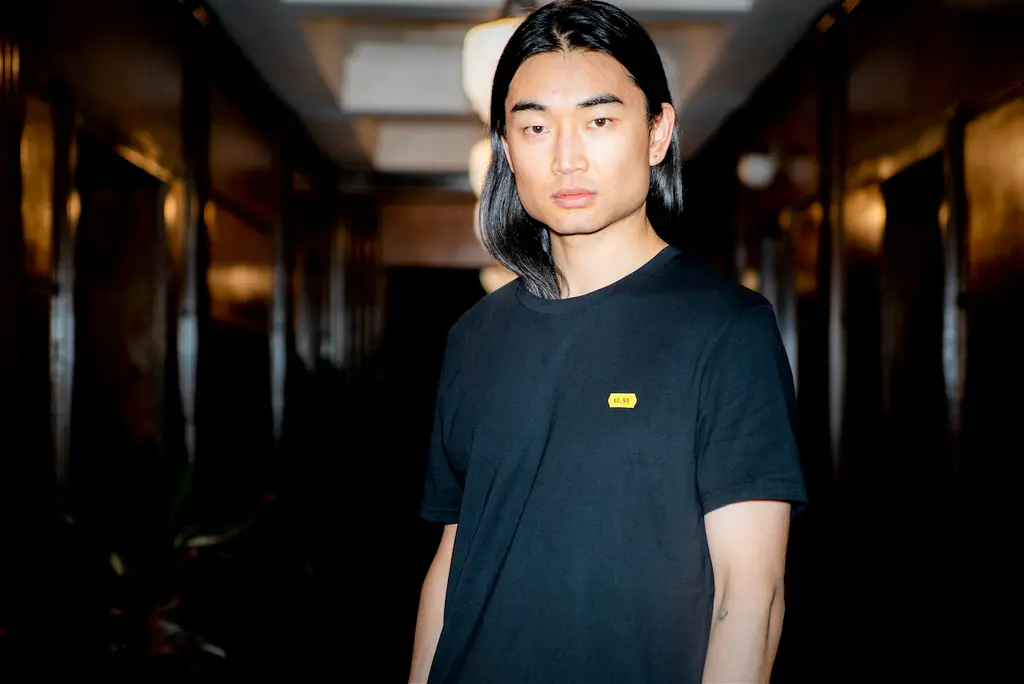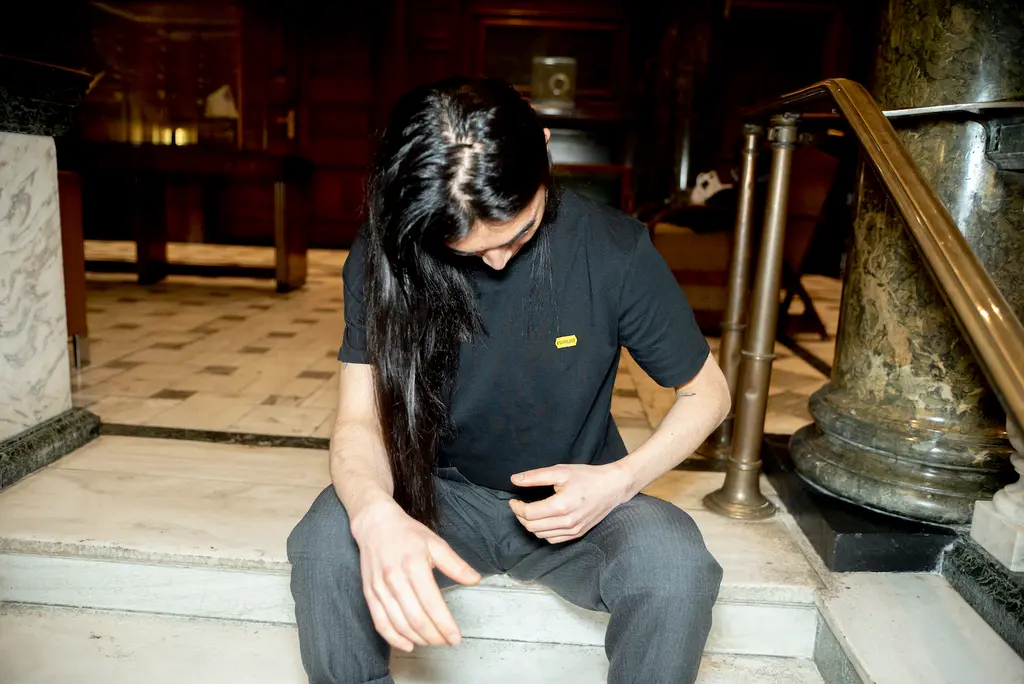Ballyhoo pokes fun at streetwear’s resale culture

Friends Jonas Roth and Rasmus Smith Bech’s new fashion brand doubles up as a social commentary on the value of the clothes we buy from big labels. Are you prepared for the world to know how much you pay for yours?
Style
Words: Jade Wickes
Jonas Roth and Rasmus Smith Bech, a creative directing duo who have been in the branding biz for over 15 years, decided to dip their toes into fashion a few months ago by launching Ballyhoo: a tongue in cheek T‑shirt brand seeking to make a playful statement on streetwear, and the culture of high-price reselling which comes with it.
The hybrid fashion and concept label came as a means to interrogate our consumer habits and, namely, the sky-high values of resale culture, often more to do with hype than the product itself. Roth and Smith Bech’s idea is satirical, and their product line is simple: a selection of black cotton tees, all of which look the same but cost between $0.99 and $1,000,000 with the price you paid for it printed onto them on small yellow tags you might find stuck to cans of beer at your local offie.
“Fashion isn’t just about garments, it’s about the world you build around it and how that adds value to clothes,” Smith Bech explains. “That’s the world we’re from, and Ballyhoo very much came from an observation of streetwear culture.”
Ballyhoo (which, fittingly, is an old word for extravagance or hype) is more about raising questions than it is about making a forthright fashion statement. “It’s interesting what we find value in when you look at clothing in general,” Roth adds. “You can get a T‑shirt made in a sweatshop for a quid. Add a logo into the mix, and all of a sudden it’s worth £1k. Is that a statement of success or being part of some kind of club? Collaborations make people go crazy.”




This year alone, collabs from the likes of Gucci and The North Face, Converse and Telfar or Palace and Juergen Teller have had punters in an iron grip, refreshing their web browsers with credit cards at the ready, prepared to spend hundreds on limited edition garments. “We don’t want to make anyone look bad specifically,” Smith Bech continues. “[Ballyhoo] is a way to make people aware about the value of branding and what they’re paying for.
“Big fashion brands often use Fruit of the Loom T‑shirts, but if A$AP Rocky wears it, all of a sudden it has value. If you wear logos, you’re indirectly telling the world how much you’ve spent. We just decided to make that transparent, honest, and impossible to hide from.”
Roth also points out that wearing any kind of logo very much reflects back on us as individuals, becoming a kind of badge that tells the world who you are. Ballyhoo makes a comment on that in the simplest, most effective way possible.
“This isn’t to say you shouldn’t buy limited edition drops where you pay hundreds for a T‑shirt,” Smith Bech concludes, “as long as you’re aware of what’s happening and it makes you think twice about what you buy next. We’re using Ballyhoo as a medium to do that.”





